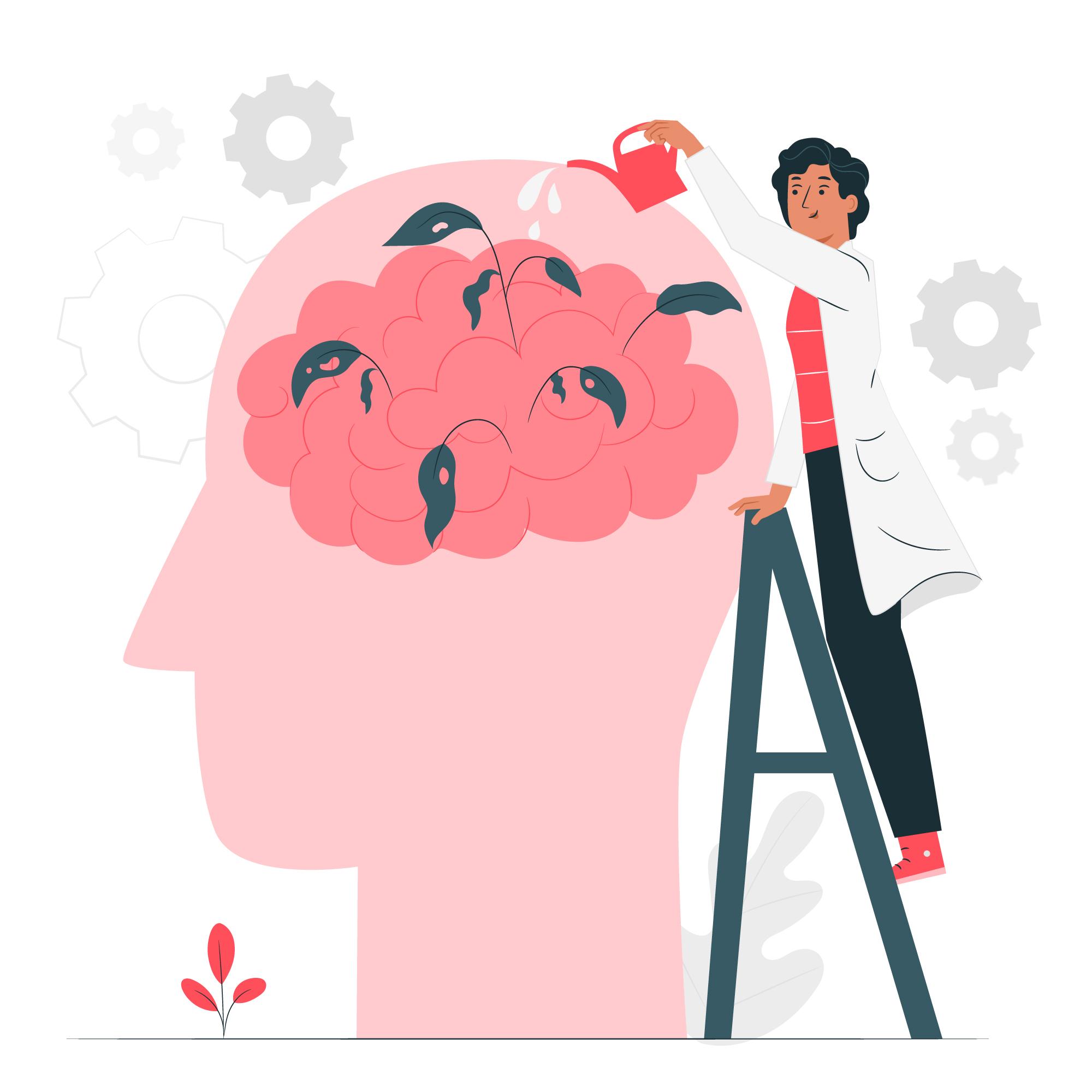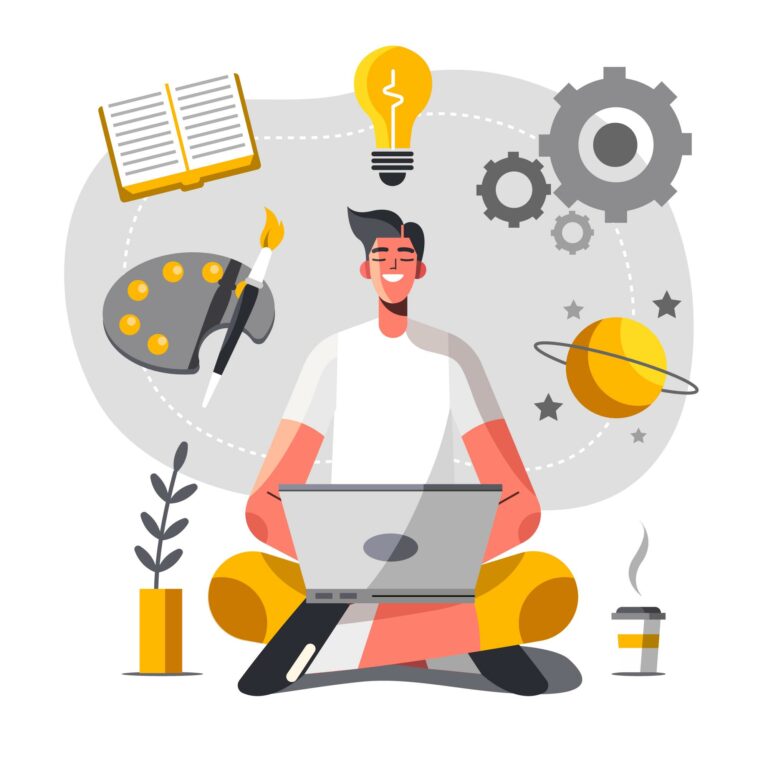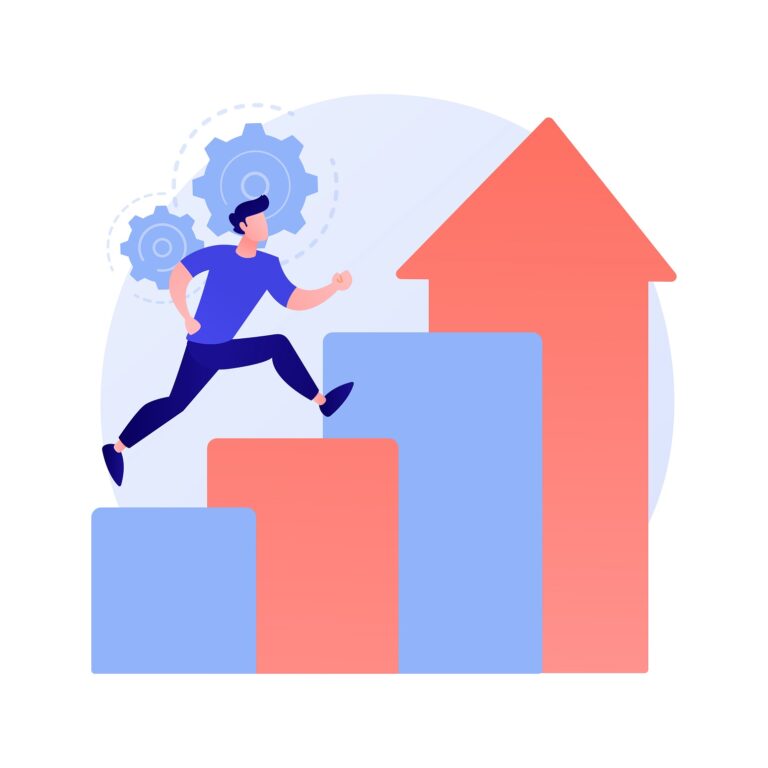AI and Mindfulness: Using AI Tools for Personal Wellness and Mental Health
In this insightful exploration, we delve into the transformative role of Artificial Intelligence in the realms of mindfulness and mental health. We uncover how AI is reshaping personal wellness practices, from tailored meditation apps to AI-powered mental health support and wellness trackers. Along the way, we critically analyze popular AI wellness tools, consider emerging trends and innovations, and address the ethical and privacy concerns associated with AI’s integration into our daily lives. Culminating in a reflection on AI’s potential and its responsible use, this article offers a comprehensive look at how technology is enhancing our journey towards better mental health and well-being, balancing innovation with mindful caution.
I. Introduction
In our fast-paced, technology-driven world, the quest for personal wellness and mental health has led us to a fascinating intersection: the melding of artificial intelligence with mindfulness practices. This article aims to explore how AI, a field typically associated with cold, logical processes, is making surprising inroads into the deeply human realm of mindfulness and mental health. We’ll delve into the rise of AI-powered tools designed to enhance personal wellness, examine their effectiveness, and consider the future of this intriguing synergy.
A. The Intersection of AI and Mindfulness
Mindfulness, the practice of being present and fully engaged with whatever we’re doing at the moment, free from distraction or judgment, has been a human pursuit for centuries. Traditionally rooted in meditation and reflective practices, mindfulness is known for its benefits in reducing stress, improving emotional health, and enhancing overall well-being.
Enter AI, a field that’s typically seen as the polar opposite of the human-centric mindfulness practice. However, when AI is applied to the realm of personal wellness, it opens up an array of possibilities that were previously unimagined. AI tools in mindfulness range from apps that guide users through meditation exercises, to algorithms that tailor mental health advice to individual users. These tools are not only making mindfulness practices more accessible but are also offering new ways to personalize and enhance the experience.
The use of AI in mindfulness is a testament to how technology can complement and enhance human experiences. AI’s ability to analyze data, recognize patterns, and provide insights can be harnessed to offer personalized mindfulness and mental health solutions. This blend of technology and human-centric practice is not just a novelty; it’s a groundbreaking approach that’s reshaping how we think about wellness in the digital age.
B. The Rise of AI in Personal Wellness
The integration of AI into personal wellness is a trend that’s gaining momentum. In recent years, there has been a significant rise in the use of AI tools designed to improve mental health and well-being. This surge is driven by a growing recognition of the importance of mental health, along with advancements in AI technology that make these tools more effective and user-friendly.
One of the key factors fueling the rise of AI in personal wellness is the increasing sophistication of AI algorithms. These algorithms can analyze vast amounts of data, learn from user interactions, and offer customized advice and support. For instance, AI-powered chatbots are being used as virtual therapists, providing users with instant, on-demand mental health support.
Another factor is the widespread availability and use of smartphones and wearable technology. These devices are ideal platforms for AI wellness tools, providing users with easy access to apps and services that can track, analyze, and offer guidance on various aspects of their health and well-being.
As AI technology continues to evolve, its potential to transform the field of personal wellness grows. From smart meditation apps that adapt to your emotional state, to AI-driven health trackers that monitor your well-being, the possibilities are endless. The rise of AI in personal wellness is not just about the technology itself; it’s about how it’s being used to foster a healthier, more mindful society.
II. Understanding AI in the Context of Mindfulness
As we delve deeper into the role of artificial intelligence in enhancing personal wellness, it becomes crucial to understand what AI is and how its capabilities can be leveraged in the realm of mindfulness. This understanding is key to appreciating the potential and limitations of AI as a tool for mental health and well-being.
A. Defining AI and Its Capabilities
Artificial Intelligence, at its core, is the simulation of human intelligence in machines. These machines, or algorithms, are programmed to think like humans and mimic their actions. AI can be as simple as a basic chatbot or as complex as an advanced neural network capable of deep learning and decision-making.
The capabilities of AI are vast and varied. One of its primary strengths is the ability to process and analyze large amounts of data quickly and accurately. This capability allows AI systems to identify patterns and insights that might be invisible to the human eye. In the context of personal wellness, this means AI can analyze data from a variety of sources – like sleep patterns, physical activity, or mood changes – to offer holistic health insights.
Another key capability of AI is its adaptability. AI systems can learn from new information and experiences, adjusting their responses and recommendations over time. This makes AI particularly effective in providing personalized wellness guidance, as it can tailor its advice to the specific needs and preferences of the user.
AI’s ability to interact in a human-like manner, through natural language processing, also makes it a valuable tool in mindfulness practices. AI can engage users in conversation, understand their queries, and provide responses that are both informative and empathetic. This human-like interaction can be particularly comforting for individuals seeking mental health support.
B. How AI Enhances Mindfulness Practices
AI’s role in enhancing mindfulness practices is multifaceted. By combining the latest in technology with the ancient practice of mindfulness, AI tools are opening up new avenues for personal growth and mental health.
One of the most direct ways AI enhances mindfulness practices is through personalized guidance. AI-powered apps and platforms can tailor meditation and mindfulness exercises to the user’s current mood, stress level, and personal preferences. This customization makes the practice more engaging and effective, as users are more likely to resonate with and benefit from exercises that feel personally relevant.
AI also contributes to mindfulness by providing insights and feedback. For example, some AI tools use voice recognition to analyze the user’s tone during meditation, offering feedback on their level of relaxation or stress. This immediate feedback can help users adjust their practice in real-time, deepening their mindfulness experience.
Furthermore, AI is expanding the accessibility of mindfulness practices. Not everyone has the means or opportunity to attend in-person meditation sessions or retreats. AI-powered tools bring mindfulness to a wider audience, offering high-quality, accessible practices regardless of location or economic status.
Finally, AI aids in habit formation, which is a crucial aspect of mindfulness. Regular practice is key to reaping the benefits of mindfulness, and AI can help by sending reminders, tracking progress, and encouraging consistency. This support is invaluable in helping users integrate mindfulness into their daily routines.
III. Top AI Tools for Mindfulness and Mental Health
In the realm of personal wellness, a myriad of AI tools have emerged, each offering unique features and benefits. These tools have become integral in supporting individuals on their journey towards mindfulness and better mental health. In this chapter, we’ll explore some of the top AI tools in this space, focusing on their functionalities and how they contribute to wellness.
A. Meditation and Mindfulness Apps
Meditation and mindfulness apps are perhaps the most direct application of AI in the field of personal wellness. These apps use AI to offer a personalized meditation experience, adapting to the user’s preferences and progress over time. Features like guided meditations, breathing exercises, and mindfulness activities are common, often accompanied by AI-driven recommendations that align with the user’s current state of mind and goals.
What sets these apps apart is their ability to learn from user interactions. Over time, they become more attuned to the individual’s patterns, effectively tailoring the experience to suit their evolving needs. Some apps also use AI to provide feedback on meditation techniques, using sensors or voice analysis to guide users towards more effective practices.
Another notable aspect of these apps is their accessibility. They bring the benefits of meditation and mindfulness to a broad audience, breaking down barriers like cost, location, or lack of local resources. Users can access high-quality mindfulness training from anywhere, making these practices more inclusive and widespread.
B. AI-Powered Mental Health Support Platforms
AI-powered mental health support platforms are transforming the landscape of mental health care. These platforms range from AI chatbots offering immediate emotional support to more comprehensive systems that provide ongoing mental health monitoring and counseling.
These platforms use AI to analyze conversations, assess user sentiment, and offer personalized support. They are especially valuable for providing initial support and guidance, particularly in situations where human therapists are not immediately available. While they are not replacements for professional therapy, they can be a crucial first step in the mental health journey, offering comfort and direction to those who might otherwise go without help.
The real-time nature of these platforms is another key benefit. They offer immediate assistance, which can be particularly important in times of crisis or when a user needs urgent emotional support. The anonymity and accessibility of these platforms also reduce the stigma around seeking mental health help, encouraging more people to take that first step towards wellness.
C. Personal Wellness Trackers with AI Integration
Personal wellness trackers with AI integration represent a more holistic approach to wellness. These devices, which include wearables like smartwatches and fitness bands, track a variety of health metrics such as sleep quality, heart rate, physical activity, and even stress levels.
AI plays a crucial role in these trackers by analyzing the collected data to offer insights and recommendations. For example, an AI system might analyze sleep patterns and suggest changes to improve sleep quality. Or, it might recognize signs of increased stress and recommend mindfulness exercises or breaks.
The personalized feedback provided by these trackers helps users make informed decisions about their lifestyle and wellness practices. The continuous monitoring also allows for a more proactive approach to health, enabling users to address potential issues before they escalate.
In conclusion, these AI tools represent the cutting edge of technology in personal wellness. From meditation apps to mental health platforms to wellness trackers, AI is providing innovative solutions to help people lead healthier, more mindful lives.
IV. Deep Dive: Analyzing Popular AI Wellness Tools
In this chapter, we delve deeper into the specifics of AI wellness tools, analyzing their features, effectiveness, and role in daily wellness routines. This detailed examination will provide a clearer picture of how these tools function and their impact on users’ mental health and well-being.
A. Review of AI Meditation Apps
AI meditation apps have become increasingly popular, offering a range of features that cater to both beginners and experienced meditators. These apps typically include guided meditations, breathing exercises, and mindfulness activities, with AI used to personalize the experience based on user feedback and interaction.
One of the key strengths of AI meditation apps is their adaptability. They evolve with the user, adjusting content and recommendations based on the user’s progress and preferences. This personalization enhances the meditation experience, making it more relevant and effective for each individual.
Many of these apps also incorporate features like mood tracking, which allows users to record their emotional state before and after meditation sessions. This data is used by the AI to refine future meditation suggestions, creating a feedback loop that continually enhances the user’s experience.
Another notable feature is the use of AI in providing insights and tips on meditation techniques. Some apps analyze voice or movement during meditation sessions to offer real-time feedback, helping users improve their practice.
B. Effectiveness of AI in Mental Health Support
The effectiveness of AI in mental health support is a topic of growing interest and research. AI-powered mental health platforms, including chatbots and online therapy tools, are increasingly being used as complementary resources in mental health care.
These platforms provide several benefits. They offer immediate, 24/7 emotional support, which can be crucial for individuals who need instant assistance or are hesitant to seek traditional therapy. The anonymity of these platforms also makes them more accessible, reducing the stigma associated with seeking mental health care.
However, it’s important to note that while AI tools can offer valuable support, they are not replacements for professional psychological therapy. They are best used as a first step or supplementary tool in a comprehensive mental health care plan.
Studies have shown that AI tools can be effective in reducing symptoms of anxiety and depression, particularly when used as part of a broader therapeutic strategy. Users often report feeling more comfortable and open when interacting with AI platforms, which can facilitate better self-expression and emotional release.
C. AI in Daily Wellness Routines
Integrating AI into daily wellness routines has the potential to significantly impact overall health and well-being. AI-driven wellness trackers and smart devices are becoming commonplace, offering users insights into their physical and mental health.
These tools monitor various health metrics, such as sleep quality, physical activity, and stress levels, providing users with comprehensive data about their daily routines. AI algorithms analyze this data to identify patterns and offer personalized recommendations. This could range from suggesting the best time to exercise based on energy levels to recommending stress-reduction techniques when high stress is detected.
The continuous monitoring and feedback provided by AI wellness tools encourage users to adopt healthier habits and make more informed decisions about their well-being. For instance, receiving notifications to take a break or engage in a brief mindfulness exercise can be instrumental in managing stress and improving mental health.
In conclusion, the incorporation of AI into wellness routines offers a proactive approach to health. It empowers individuals with knowledge and tools to better understand and manage their well-being, leading to a healthier, more balanced lifestyle.
V. The Future of AI in Mindfulness and Mental Health
As we look towards the future, it becomes evident that the integration of AI in mindfulness and mental health is not just a passing trend, but a growing field brimming with potential. In this chapter, we explore the emerging trends and innovations in this space, as well as the ethical considerations and privacy concerns that come with the increasing use of AI.
A. Emerging Trends and Innovations
The future of AI in mindfulness and mental health is marked by several exciting trends and innovations. One significant trend is the increasing use of AI for personalized mental health care. AI algorithms are becoming more sophisticated in analyzing user data, allowing for more accurate and individualized recommendations. This personalization extends beyond just suggesting activities or exercises; it involves tailoring entire wellness programs to fit individual needs.
Another trend is the integration of AI with other technologies like virtual reality (VR) and augmented reality (AR). These technologies can create immersive mindfulness experiences, making practices like meditation more engaging and effective. For example, VR environments can transport users to serene, calming locations for meditation, enhanced by AI-driven scenarios that adapt to the user’s emotional state.
We are also witnessing the rise of AI in predictive mental health care. By analyzing patterns in behavior and mood, AI can potentially predict mental health issues before they become severe, enabling early intervention. This proactive approach could revolutionize mental health care, shifting the focus from treatment to prevention.
B. Ethical Considerations and Privacy Concerns
With the advancement of AI in mindfulness and mental health, ethical considerations and privacy concerns come to the forefront. The primary concern revolves around the handling and protection of sensitive personal data. Users often share intimate details about their mental and emotional state with these AI tools, and the security of this information is paramount.
There are also ethical questions about the extent of reliance on AI for mental health support. While AI can provide valuable assistance, there is a risk of users becoming overly dependent on these tools, potentially at the expense of human interaction and professional mental health services.
Furthermore, there is a need for transparency in how these AI tools operate and make decisions. Users should be aware of how their data is being used and what algorithms are behind the recommendations they receive. Ensuring this transparency is crucial for building trust and maintaining the integrity of AI in mental health.
Privacy regulations and ethical guidelines will need to evolve alongside these technological advancements to protect users. This involves not only securing data but also ensuring that AI tools are used responsibly, with a clear understanding of their limitations and impact on users.
In conclusion, the future of AI in mindfulness and mental health is filled with promising possibilities and challenges. As we navigate this evolving landscape, balancing innovation with ethical responsibility and user privacy will be key to harnessing the full potential of AI in enhancing mental health and well-being.
VI. Conclusion
As we reach the end of our exploration into the fascinating world of AI and its role in mindfulness and mental health, it’s time to reflect on what we’ve learned and consider the future of this dynamic synergy. The journey through the various facets of AI in personal wellness has revealed both its immense potential and the complexities it introduces.
A. Summary of AI’s Role in Personal Wellness
Throughout this article, we’ve seen how AI has become an integral part of the personal wellness landscape. From meditation and mindfulness apps that offer personalized experiences to AI-powered mental health support platforms providing immediate assistance, AI has significantly expanded the tools available for mental health and well-being.
We’ve delved into the effectiveness of these tools in providing real-time insights, personalized recommendations, and the potential to transform daily wellness routines. AI’s ability to analyze data and learn from user interactions has made it possible to tailor wellness practices to individual needs, making them more accessible and effective.
Moreover, we’ve looked at the future of AI in this field, highlighting emerging trends like the integration of AI with VR and AR for immersive mindfulness experiences, and the use of predictive algorithms for early mental health intervention. These advancements promise to further revolutionize the way we approach personal wellness.
B. Final Thoughts on Embracing AI for Mental Health
Embracing AI in the realm of mental health and mindfulness is not without its challenges, but the benefits it offers are undeniable. As we move forward, it’s crucial to strike a balance between leveraging the advantages of AI and being mindful of its limitations and ethical implications.
The key lies in viewing AI as a complement to, rather than a replacement for, traditional mental health practices. AI tools should be used to enhance and support, not substitute, professional medical advice and human interaction. As we continue to navigate the complexities of mental health in an increasingly digital world, AI can play a significant role in making wellness practices more accessible and effective.
However, as we harness the power of AI, we must also be vigilant about protecting user privacy and ensuring ethical use of technology. The future of AI in mindfulness and mental health is bright, but it rests on a foundation of responsible and ethical development and use.
In conclusion, the journey of AI in the landscape of personal wellness is just beginning. As technology continues to evolve, so too will its role in supporting and enhancing our mental health and well-being. By embracing the potential of AI with caution and responsibility, we can look forward to a future where technology and mindfulness coexist in harmony, leading to a healthier, more balanced life.







